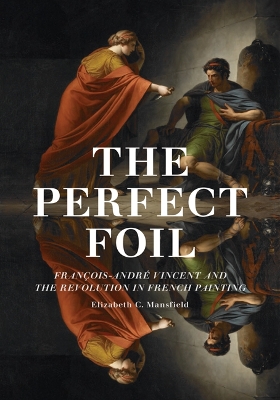Art history is haunted by the foil: the dark star whose diminished luster sets off another’s brilliance. Relegated to this role by modern historians of Revolutionary-era French art, François-André Vincent (1746–1816) is chiefly viewed in the reflection of his contemporary, Jacques-Louis David. The Perfect Foil frees Vincent from this distorting mirror. Offering a nuanced and historically accurate account of Vincent’s life and work, Elizabeth C. Mansfield reveals the artist’s profound influence on the visual culture of the French Revolution—and, paradoxically, on the art historical narrative that would consign him to obscurity.
The Vincent of The Perfect Foil is an artist whose life and work responded to cultural conditions—religious difference, emotional bonds, institutional pressures—only now finding their way into art historical accounts of the period. A successful academician despite his status as a member of the Protestant minority, a leading reformer of arts institutions during the Revolution, the progenitor of French Romanticism, and the husband of one of the period’s most celebrated women artists, François-André Vincent emerges in these pages as an embodiment of the ambivalences and contradictions of life in France in the wake of the Enlightenment.
By giving us a detailed and faithful portrait of this artist poised at the turning point of history, Mansfield restores a critically important body of work to its rightful place in the story of French art and reorients Revolutionary-era French art history toward a broader, more inclusive understanding of the period.
- ISBN10 0816675813
- ISBN13 9780816675814
- Publish Date 21 December 2011
- Publish Status Active
- Publish Country US
- Imprint University of Minnesota Press
- Format Paperback
- Pages 320
- Language English
